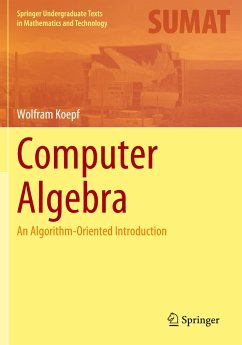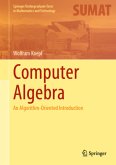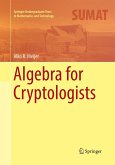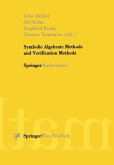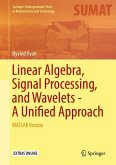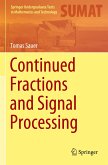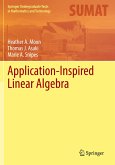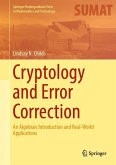This textbook offers an algorithmic introduction to the field of computer algebra. A leading expert in the field, the author guides readers through numerous hands-on tutorials designed to build practical skills and algorithmic thinking. This implementation-oriented approach equips readers with versatile tools that can be used to enhance studies in mathematical theory, applications, or teaching. Presented using Mathematica code, the book is fully supported by downloadable sessions in Mathematica, Maple, and Maxima.
Opening with an introduction to computer algebra systems and the basics of programming mathematical algorithms, the book goes on to explore integer arithmetic. A chapter on modular arithmetic completes the number-theoretic foundations, which are then applied to coding theory and cryptography. From here, the focus shifts to polynomial arithmetic and algebraic numbers, with modern algorithms allowing the efficient factorization of polynomials. The final chapters offer extensions into more advanced topics: simplification and normal forms, power series, summation formulas, and integration.
Computer Algebra is an indispensable resource for mathematics and computer science students new to the field. Numerous examples illustrate algorithms and their implementation throughout, with online support materials to encourage hands-on exploration. Prerequisites are minimal, with only a knowledge of calculus and linear algebra assumed. In addition to classroom use, the elementary approach and detailed index make this book an ideal reference for algorithms in computer algebra.
Opening with an introduction to computer algebra systems and the basics of programming mathematical algorithms, the book goes on to explore integer arithmetic. A chapter on modular arithmetic completes the number-theoretic foundations, which are then applied to coding theory and cryptography. From here, the focus shifts to polynomial arithmetic and algebraic numbers, with modern algorithms allowing the efficient factorization of polynomials. The final chapters offer extensions into more advanced topics: simplification and normal forms, power series, summation formulas, and integration.
Computer Algebra is an indispensable resource for mathematics and computer science students new to the field. Numerous examples illustrate algorithms and their implementation throughout, with online support materials to encourage hands-on exploration. Prerequisites are minimal, with only a knowledge of calculus and linear algebra assumed. In addition to classroom use, the elementary approach and detailed index make this book an ideal reference for algorithms in computer algebra.
"Strong interplay between the abstract exposition, which includes the relevant theorems as well as their proofs, and the practical utilization of those concepts in Mathematica is certainly a remarkable feature of this textbook. ... Overall, the book is very well written and the approach to provide examples as actual Mathematica sessions is commendable." (Andreas Maletti, zbMATH 1484.68004, 2022)

